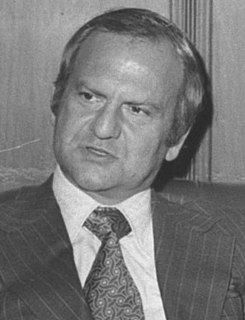A Quote by William Faulkner
I learned little save that most of the deeds, good and bad both, incurring opprobrium or plaudits or reward either, within the scope of man's abilities, had already been performed and were to be learned about only from books.
Related Quotes
I learned to live many years ago. Something really, really bad happened to me, something that changed my life in ways that, if I had my druthers, it would never have been changed at all. What I learned from it is that today seems to be the hardest lesson of all. I learned to love the journey, not the destination. I learned that it is not a dress rehearsal, and that today is the only guarantee you get. I learned to look at all the good in the world and to try to give some of it back because I believed in it completely and utterly.
I had once believed that we were all masters of our fate--that we could mold our lives into any form we pleased... I had overcome deafness and blindness sufficiently to be happy, and I supposed that anyone could come out victorious if he threw himself valiantly into life's struggle. But as I went more and more about the country I learned that I had spoken with assurance on a subject I knew little about... I learned that the power to rise in the world is not within the reach of everyone.
The truth is that there are no good men, or bad men,' he said. 'It is the deeds that have goodness or badness in them. There are good deeds, and bad deeds. Men are just men - it is what they do, or refuse to do, that links them to good and evil. The truth is that an instant of real love, in the heart of anyone - the noblest man alive or the most wicked - has the whole purpose and process and meaning of life within the lotus-folds of its passion. The truth is that we are all, every one of us, every atom, every galaxy, and every particle of matter in the universe, moving toward God.
I learned from the Macarturos. I had never been at a table with a labor organizer and a playwright and a performance artist and an anthropologist and a human rights lawyer. Usually at most gatherings, it's all writers. But suddenly I was at a table with all these different people and I learned from each of them, learned from the work they're doing, learned new ways to solve my problems.
The rabbis, the Jewish religious people, the priests of the temple of Jerusalem, they were learned fools. They could not tolerate Jesus. The learned fools are always disturbed by the blessed fools. They had to murder him because his very presence was uncomfortable; his very presence was such a pinnacle of peace, love, compassion and light, that all the learned fools became aware that their whole being was at stake. If this man lived then they were fools, and the only way to get rid of this man was to destroy him so they could. again become the learned people of the race.
It wasn't until my late twenties that I learned that by working out I had given myself a great gift. I learned that nothing good comes without work and a certain amount of pain. When I finish a set that leaves me shaking, I know more about myself. When something gets bad, I know it can't be as bad as that workout.
You are different from the really great man in only one thing: The great man, at one time, also was a very little man, but he developed one important ability: he learned to see where he was small in his thinking, and actions. Under the pressure of some task which was dear to him he learned better and better to sense the threat that comes from his smallness and pettiness. The great man, then, knows when and in what he is a little man.
There is a sort of knowledge beyond the power of learning to bestow, and this is to be had in conversation; so necessary is this to the understanding the characters of men, that none are more ignorant of them than those learned pedants whose lives have been entirely consumed in colleges and among books; for however exquisitely human nature may have been described by writers the true practical system can be learned only in the world.
I learned a lot about my parents, who were both teachers. I had known that my parents were very strongly in favor of education. I had known that they had an impact on a lot of people, but people came out of the woodwork who have said, "You know, without your father, I would never have gone to college," very successful people. And so I learned how widespread their educational evangelism really was.






































